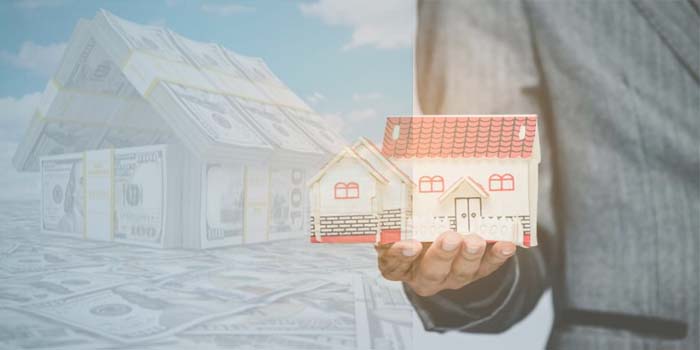One of the most unfortunate realities of modern economies-; especially those whose money supply is controlled by banking cartels such as The Federal Reserve-; is that inflation will always increase. In 1970, a gallon of milk costs around $1.00.
Today, that same basic grocery staple costs nearly four times that amount. But while milk that was bought in 1970 has no value today, the value of a real estate property that was purchased and properly maintained in 1970 will have not only retained its initial value but increased several times over. As one of the most popular and stable investments in modern economies, there are several reasons why investing in real estate can help protect against inflation.
Rents Rise Along with Inflation
The value of a real estate property-; particularly a rental property-; is primarily determined by what tenants are willing to pay for access to that space. As inflation increases, so does the amount that tenants are willing to pay for rent. According to a recent paper published for the Teacher’s Insurance and Annuity Association-College Retirement Equities Fund-; a leading Fortune 100 Financial Services
Organization-; financial expert Martha Peyton, Ph.D states that “If the local property market does not have a supply glut at the time of [lease] renewal, then the adjustment in rent is, at minimum, likely to catch up to inflation.” Some real estate analysts go even farther to claim that inflation can sometimes actually be advantageous to the landlord. If you are interested in real estate investment opportunities in Florida, consider learning about more from Metro Places.
Real Estate Value Increases While the Cost Stays Fixed
Although real estate properties require maintenance and repairs over time, the biggest cost associated with them is the generally initial buyer’s cost. The good news here for investors is that once a property has been purchased, that initial cost is absolutely fixed.
While upkeep cost and property taxes may increase, the price you already paid to own the property stays the same. Additionally, with proper maintenance, real estate value almost universally increases over time, and rent-; which is subject to inflation-; increases at an average of three to five percent annually on average.
Inflation Increases New Building Materials Costs
When inflation goes up-; and it always does-; it costs more to produce new properties for a variety of reasons. As inflation rises, so does the cost of both materials. What that ultimately means is that because the literal brick and mortar of new properties become more expensive to acquire, the supply of available properties generally decreases or stabilizes, and the value of your currently existing property is protected against new competitors.
While others pay new and inflated prices for the materials out of which their properties are constructed, the price of your already purchased materials stays the same.
Inflation Increases Labor and Permitting Costs
Not only does the value of the materials involved with real estate rise with inflation, so does the cost of employing skilled laborers to assemble them. Because it costs more to pay the people that build new properties, the overall price of new properties is basically guaranteed to be higher. Because the price is higher, the rental rates required to sustain a profit are likely to be higher as well, which will make the rates offered by your property more competitive.
Although inflation is an inescapable reality of the modern financial world, real estate is perhaps one of the best investments available to help protect investors against the eroding value of their currency, because rent rises with inflation and the costs associated with building new properties will only go up over time, real estate is one of the best investments to guard against your financial capital against rising inflation.




